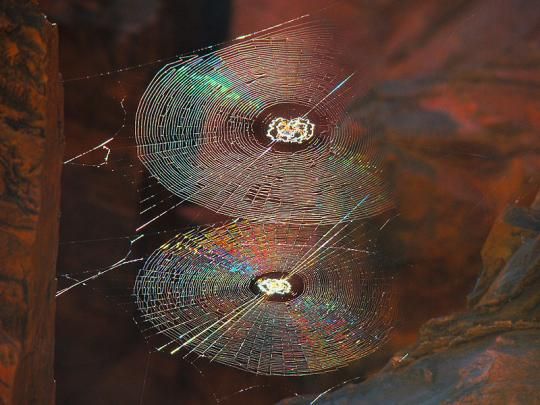|
|
Spider Web
|
The abdomen has no appendages except those that have been modified to form one to four (usually three) pairs of short, movable spinnerets, which emit silk. Each spinneret has many spigots, each of which is connected to one silk gland. There are at least six types of silk gland, each producing a different type of silk.
Silk is mainly composed of a protein very similar to that used in insect silk. It is initially a liquid, and hardens not by exposure to air but as a result of being drawn out, which changes the internal structure of the protein. It is similar in tensile strength to nylon and biological materials such as chitin, collagen and cellulose, but is much more elastic, in other words it can stretch much further before breaking or losing shape.
Some spiders have a cribellum, a modified spinneret with up to 40,000 spigots, each of which produces a single very fine fiber. The fibers are pulled out by the calamistrum, a comb-like set of bristles on the jointed tip of the cribellum, and combined into a composite woolly thread that is very effective in snagging the bristles of insects. The earliest spiders had cribella, which produced the first silk capable of capturing insects, before spiders developed silk coated with sticky droplets. However most modern groups of spiders have lost the cribellum.
Even species that do not build webs to catch prey use silk in several ways: as wrappers for sperm and for fertilized eggs; as a "safety rope"; for nest-building; and as "parachutes" by the young of some species.
|
|









